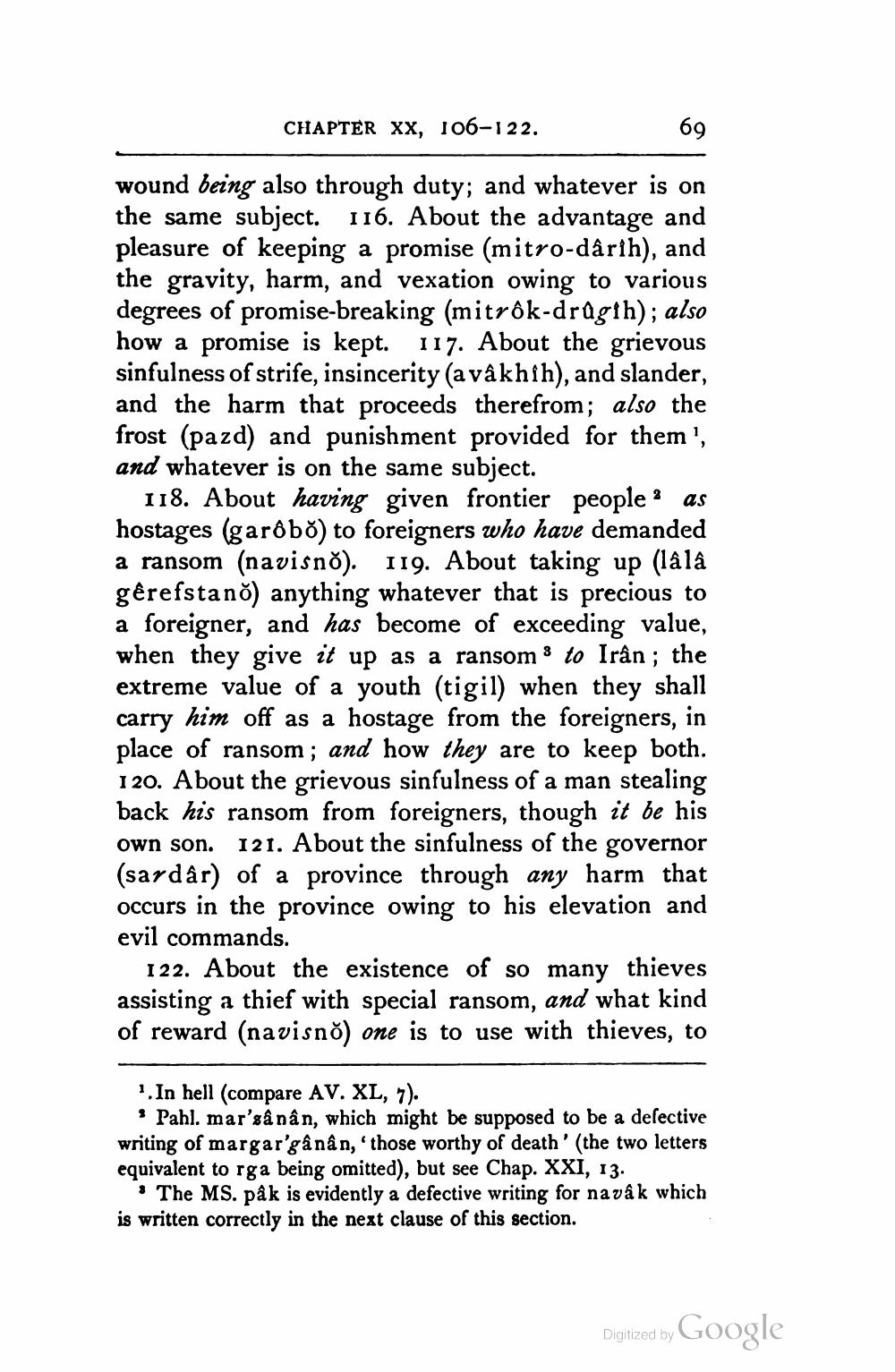________________
CHAPTER XX, 106-122.
wound being also through duty; and whatever is on the same subject. 116. About the advantage and pleasure of keeping a promise (mitro-dârih), and the gravity, harm, and vexation owing to various degrees of promise-breaking (mitrôk-dragih); also how a promise is kept. 117. About the grievous sinfulness of strife, insincerity (a vâkhih), and slander, and the harm that proceeds therefrom; also the frost (pazd) and punishment provided for them ', and whatever is on the same subject.
118. About having given frontier people as hostages (garôbo) to foreigners who have demanded a ransom (navisno). 119. About taking up (lâlâ gêrefstano) anything whatever that is precious to a foreigner, and has become of exceeding value, when they give it up as a ransom 8 to Irân; the extreme value of a youth (tigil) when they shall carry him off as a hostage from the foreigners, in place of ransom; and how they are to keep both. 120. About the grievous sinfulness of a man stealing back his ransom from foreigners, though it be his own son. 121. About the sinfulness of the governor (sardar) of a province through any harm that occurs in the province owing to his elevation and evil commands.
122. About the existence of so many thieves assisting a thief with special ransom, and what kind of reward (navisno) one is to use with thieves, to
1. In hell (compare AV. XL, 7).
• Pahl. mar'sânân, which might be supposed to be a defective writing of margar'gânân, those worthy of death' (the two letters equivalent to rga being omitted), but see Chap. XXI, 13.
The MS. pâk is evidently a defective writing for navak which is written correctly in the next clause of this section.
Digitized by Google




